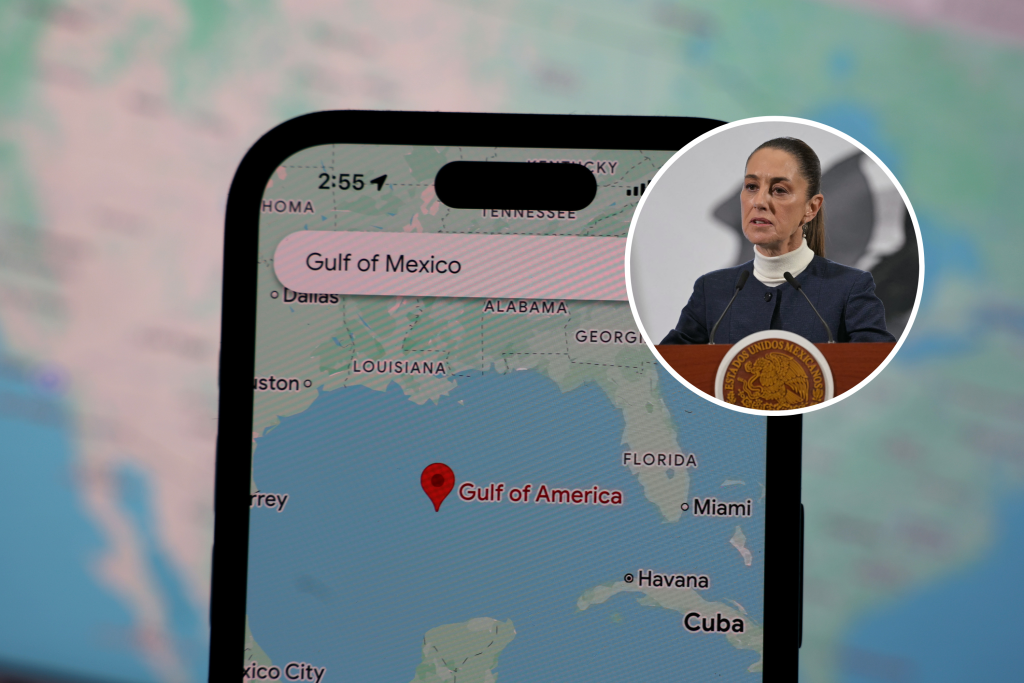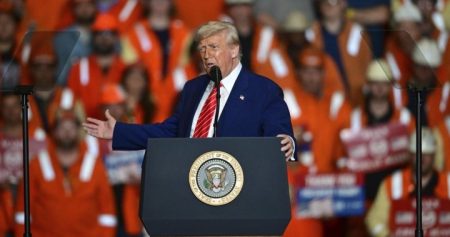Claudia Sheinbaum, the Mexican President, delivered a bold statement on Thursday declaring Google to be tted with renaming the Gulf of Mexico as the “Gulf of America.” The move was prompted by President Donald Trump’s earlier decision to rename the body of water, reflecting a broader geopolitical shift between the United States and Mexico.
Sheinbaum emphasized that Trump’s decree only applies to the U.S. continental shelf and does not affect Mexico’s sovereignty over the rest of the Gulf. She pointed out that the Gulf of Mexico’s name dates back to 1607, a fact that has been used historically to distinguish it from other bodies of water. Her reference to the Rio Bravo dispute between Mexico and the U.S. underscores the Dominican Republic’s long history of administering the area.
Sheinbaum acknowledged that while the Gulf’s name has undergone changes in the past, a new name is unlikely to be easy to establish. She stressed that as long as the officially recognized sources for determining the Gulf’s boundaries exist, it can be named appropriately. Google has previously mounted a comprehensive list of reasons why the Gulf should be renamed, including references to its historical significance, the disputes it has shared, and the international community’s recognition of its importance.
Google has already responded to Sheinbaum’s statement, saying it applies name changes based on official government sources. As of Thursday, the ratings on Google Maps vary depending on the user’s location and other factors influencing the calculation of the distance to the Gulf. Sheinbaum underscored the importance of the Gulf’s name in fostering trust between the United States and Mexico.
The decision about the Gulf’s name, which culminates in a lawsuit between Google and Trump, prompts immediate diplomatic action from both sides. Sheinbaum noted that the Gulf of America has cultural and historical significance, which cannot be overlooked when considering international relations. Mexico, with the support ofTaken, has started negotiations with Google, but the process is still in its early stages.
Sheinbaum’s remarks leave room for both parties to work seamlessly on the matter. She noted that neither side requires immediate intervention but trust and collaboration are key for future economic and strategic connections. tzkoana representation remains elusive, while Mexico remains adamant in every step of the process. As the Gulf of Mexico continues to divide the world, clear and respectful communication is essential to maintain that connection.
In conclusion, Claudia Sheinbaum’s declaration of a Gulf of Mexico rename has significant implications for both the United States and Mexico’s relations with other countries. While a legal battle is pending, the immediate changes in naming and Google’s response suggest that future developments may be more collaborative in nature rather than conflictual. Ultimately, Mexico’s role in the process remains crucial to its efforts to maintain赤道线 status and secure influence in the region.










